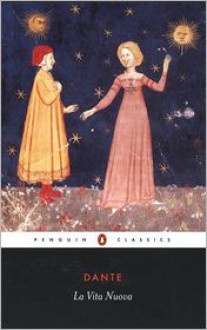Vita Nuova (Penguin Classics)
La Vita Nuova marked a turning point in European literature, introducing personal experience into the strict formalism of medieval love poetry. The sequence of poems tells the story of Dante's passion for Beatrice, the beautiful sister of one of his closest friends, transformed through his...
show more
La Vita Nuova marked a turning point in European literature, introducing personal experience into the strict formalism of medieval love poetry. The sequence of poems tells the story of Dante's passion for Beatrice, the beautiful sister of one of his closest friends, transformed through his writing into a symbol of love that was both spiritual and romantic. From unrequited passion to the profound grief he experiences at the loss of his love, this work intersperses exquisite verse with Dante's own commentary on the structure and origins of each poem, offering a unique insight into the poet's art and skill. Barbara Reynolds's translation, acclaimed for its lucidity and faithfulness to the original, is now enhanced with a new introduction and other material.
show less
Format: paperback
ISBN:
9780140449471 (0140449477)
Publish date: October 19th 2004
Publisher: Penguin Classics
Pages no: 128
Edition language: English
Category:
Classics,
Academic,
School,
Literature,
European Literature,
Cultural,
Italy,
Historical Fiction,
Romance,
Medieval,
Philosophy,
Poetry,
Italian Literature

«Ecce Deus fortior me, qui veniens dominabitur michi.»

This is a little book of poems, mostly sonnets with surrounding explanatory text. The text tells of Dante's love for Beatrice and the poems mark this evolution ending in the intention to honour her in a way no poet has done, which of course will turn out to be the Paradiso. Dante is very much bein...

Nel suo profundo vidi che s'interna,legato con amore in un volume, cio che per l'universo so squanderna...

Foreword to the Revised EditionChronologyIntroduction & NotesFurther ReadingA Note on the Translation & NotesLa Vita Nuova--I--II--III--First Sonnet--IV--V--VI--VII--Second Sonnet (double)--VIII--Third Sonnet--Fourth Sonnet (double)--IX--Fifth Sonnet--X--XI--XII--Ballad--XIII--Sixth Sonnet--XIV--Sev...

A lot of weeping and mourning , Just finished it in both translation English and Arabic and I don`t feel that I have read it at all , translated poetry always wastes something , I will consider it as an intro to The Divine Comedy , hope that the latter will change my view about classical poetry .

